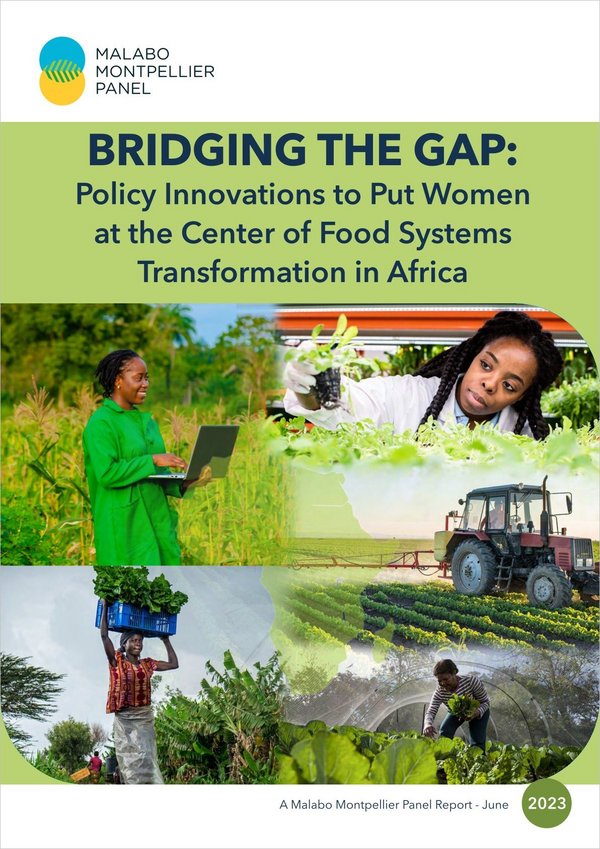- Share this article
- Subscribe to our newsletter
Putting women at the centre of food systems transformation in Africa
African governments must “urgently redouble” efforts to achieve gender equality in agrifood systems. This is the conclusion a new report titled Bridging the Gap: Policy Innovations to Put Women at the Center of Food Systems Transformation in Africa, which was published by the Malabo Montpellier Panel in June 2023. Gender equality in food systems is critical to improving women’s nutrition, health and economic empowerment, the expert panel says.
Africa has made progress in recent years, according to the report. For instance, it has adopted a number of frameworks that support gender equality. But “slow and fragile” advances have been undermined by shocks like Covid-19 and conflicts.
The publication argues that agrifood systems designed to work equally for women and men can contribute to more equitable, resilient and healthier societies. According to the Affirmative Finance Action for Women in Africa initiative, women’s inability to access finance is projected to reduce the continent’s GDP by USD 316 billion by 2025. This shortcoming, coupled with unequal access to land, finance, information and decision-making, is reducing women’s agency in Africa’s food system transformation. To course-correct, the report gives recommendations on how to empower women in Africa’s agrifood systems in science and research, extension services (training and support for farmers), food production, post-harvest handling and processing, distribution and trade, nutrition, and consumption – and at all levels of leadership and policymaking.
The panel analyses four success stories – Ethiopia, Ghana, Rwanda and Togo. It highlights some of the policy and institutional innovations that can contribute to more equitable food systems and give women greater agency.
According to the report, the global gender food security gap has increased eightfold since 2018. Recent estimates from the UN Food and Agriculture Organization (FAO) indicate that closing the gender gap in farm productivity would reduce global food insecurity by about two percentage points – that is equivalent to reducing the number of food-insecure people by 45 million. It would also add an estimated USD 1 trillion to global GDP.
However, the panel’s report found that women represent only 25 per cent of agricultural scientists in Africa, while the financing gap for women on the continent is estimated at USD 15.6 billion in agriculture alone. In Mali, just one of the 302 extension workers identified by the report was a woman.
The panel made a number of key recommendations: in order to accelerate the transition to non-discriminatory governance structures at all levels, programmes should foster an understanding of why gender equality is mutually beneficial and the role that boys and men can play in promoting empowerment; in order to address systemic inequalities, women must be equally represented at all levels of government, decision-making processes, and in food systems services; African policy frameworks must be consolidated in the context of commitments to the United Nations Food Systems Summit (UNFSS) and the post-Malabo agenda.
(Malabo Montpellier Panel/ile)
Read more and download the report on the Malabo Montpellier Panel website





Add a comment
Comments :